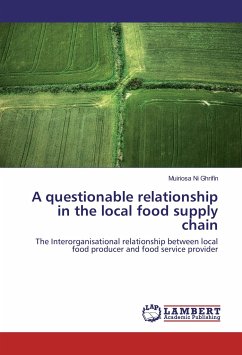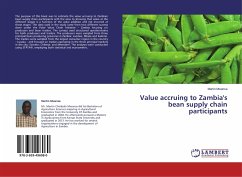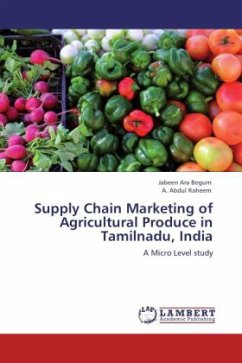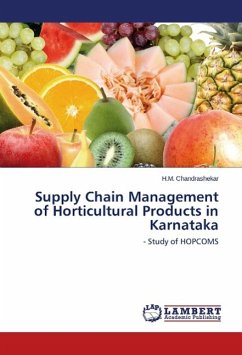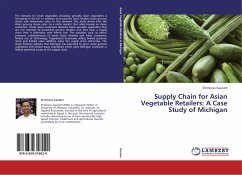
Supply Chain for Asian Vegetable Retailers: A Case Study of Michigan
Versandkostenfrei!
Versandfertig in 6-10 Tagen
32,99 €
inkl. MwSt.

PAYBACK Punkte
16 °P sammeln!
The demand for fresh vegetables including specialty Asian vegetables is increasing in the US. In addition to broad-line food retailers Asian grocery stores and restaurants cater to this demand. This study shows that the Asian grocery stores cater to a niche market that relies heavily on Asian customers. These Asian customers demand Asian specialty vegetables that are not common to broad-line grocery retailers and thus have a supply chain that is distinctive with ethnic ties. The variables such as ethnic presence, predominance of exotic Asian varieties and Asian customers, limited use of techno...
The demand for fresh vegetables including specialty Asian vegetables is increasing in the US. In addition to broad-line food retailers Asian grocery stores and restaurants cater to this demand. This study shows that the Asian grocery stores cater to a niche market that relies heavily on Asian customers. These Asian customers demand Asian specialty vegetables that are not common to broad-line grocery retailers and thus have a supply chain that is distinctive with ethnic ties. The variables such as ethnic presence, predominance of exotic Asian varieties and Asian customers, limited use of technology, fragmented businesses selling limited produce items and limited value addition make the supply chain distinctive. The study findings indicate that Michigan has potential to grow some general vegetables and limited Asian vegetables which gives Michigan producers a limited potential access to the supply chain.



